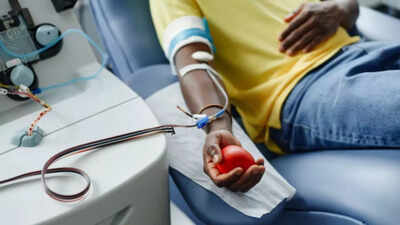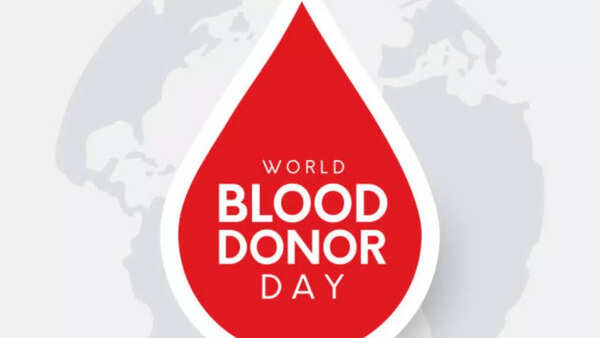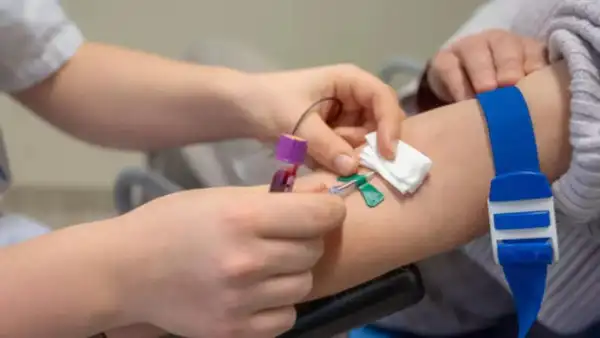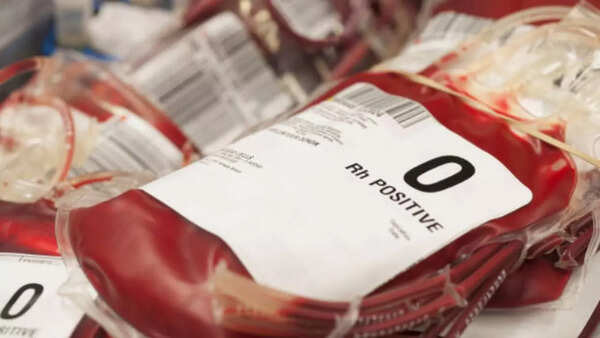ARTICLE AD BOX

Image credits: Getty Images
Every drop of blood counts when it is given to someone struggling for life. What might just be a regular donation for you, could help a person continue their life alongside their loved ones in good health.
Being a donor is more than just performing a civic duty, it is being a giver, one who shares a bit of their life with the others.June 14th is being celebrated as World Donor Day around the world, urging people to donate blood and enlightening them about the importance of it. However, sometimes we hesitate to donate due to some myths we have heard around by people. Who can donate blood and what are some common myths and facts related to blood donation? Find out below!
World Blood Donor Day

Image credits: Getty Images
Each year, June 14 is celebrated as World Blood Donor Day.
The day raises awareness on the need of safe blood and blood products and as a gratitude to the voluntary, unpaid blood donors for their life-saving gifts of blood.The theme of World Blood Donor Day changes every year and for 2025 it is 'Give blood, give hope', honouring the hope one gives with every drop of blood.The day was started in 2004, followed by its formal designation as an annual event by the 58th World Health Assembly in 2005.
It is celebrated particularly on June 14 to honour Karl Landsteiner, Austrian biologist and physician considered to be the "founder" of modern blood transfusion that saves thousands of lives every year.
Who can donate blood?

Image credits: Getty Images
According to the World Health Organization (WHO), most people can give blood if they are healthy. Though there are some basic eligibility criteria.Age: People between the ages of 18 and 65 can donate blood.Weight: You have to weigh at least 50 kg to be able to donate blood.Health: You must be in good health while donating blood and avoid it if you are suffering from cold, flu, sore throat, cold sore, stomach bug or any other infection. Additionally, you can not donate if you don't meet the minimum haemoglobin level for blood donation. In some countries, the haemoglobin level of no less than 12.0 g/dl for females and 13.9g/dl for males is considered the threshold.
Myths and facts to know about blood donation

Image credits: Getty Images
Those donating blood for the first time or after some new activity may face a problem with some myths circulating around about blood donations.
These are the common myths and facts you must know before donating.
Myth: People with tattoos or piercings can't donate
People with fresh tattoos or piercings need to have a gap between their tattoos or piercings and blood donation. In the US, you need to wait for three months before donating in such a case, but the time period varies in different countries.
Myth: I will feel weak or ill after the donation
While you feel a bit lightheaded after donation, the fluids are recuperated in the body within 24 hours and the red cells fully regenerate within weeks.
Myth: You can only donate with a certain blood type
Every person who has a specific blood group might need blood in case of a medical condition. Thus, blood donation is not limited to a particular blood type. While O-negative is universal, every blood type comes in handy during emergencies.
Myth: Vegetarians or vegans can't donate blood
Healthy iron and haemoglobin levels are required for donating blood, no matter what kind of diet you follow. If you are someone suffering from iron deficiency then you could be temporarily deferred from donating but not because of a diet you consume.



.png)
.png)
.png)
















 13 hours ago
5
13 hours ago
5









 English (US) ·
English (US) ·